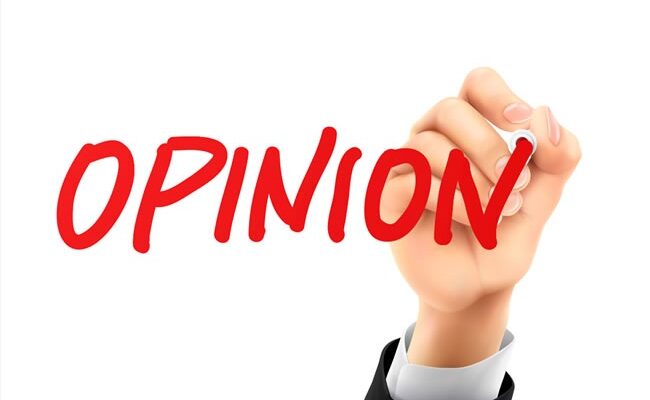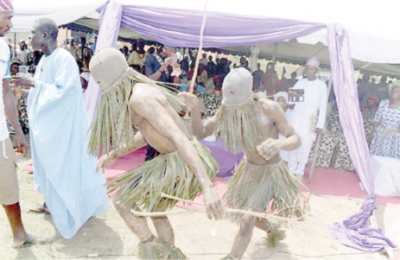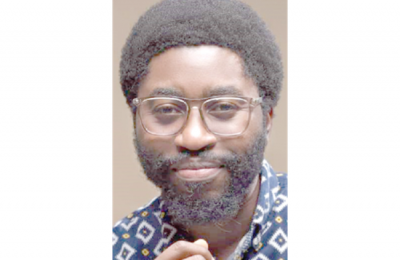I recently boarded a mini-bus (korope) from Ogba to Alausa and was surprised to encounter unexpected traffic congestion on the lanes, even though it was not rush hour. The traffic was moving slowly, but the air in the mini-bus was thick with frustration as passengers, driven by impatience urged our driver to take the notorious “one-way”. They complained that other drivers were already driving against traffic. “So why not us?” They queried. In an economy grappling with soaring fuel prices, the passengers could not understand why our driver did not adopt a more ‘efficient approach’ like his peers. I was the lone voice asking the driver to stay on course and I was met with insults. Eventually, the collective dissatisfaction prevailed, and our driver succumbed to the pressure, deciding to drive against traffic. Unsurprisingly, we reached our destination faster than law-abiding drivers. I couldn’t, however, help but ponder the potential consequences of such lawlessness. What if our driver had caused an accident or harmed a pedestrian? The blame would likely fall on the seeming inadequacies of traffic regulators like LASTMA officials or the perceived incompetence of the traffic police. It would be a sorry case of “government yii sha, they create laws but don’t implement them”
Yet, the real reason for that traffic jam was an alliance between not just danfo drivers but private vehicle owners pirouetting through the centre of the road, picking up passengers as if the roads were their personal driveways. So, when I heard about the media chat coming up with Mr Governor, I was excited! I saw it as an opportunity to understand the roots of the fractured relationship between the State and its citizens. As a Fellow of the Lateef Jakande Leadership Academy (LJLA), I had the privilege of attending the media chat with Mr. Governor, tagged, “Sanwo-Olu Speaks.” The presence of media personalities like Dr. Abati, Mrs Sola Kosoko and Mr Babajide Otitoju, hinted at a session that would be real, straight to the point and people-centric. I was not wrong. In that room, as Mr Governor responded to burning questions, there was an air of sincerity that cut through our hearts because we saw a leader who could be touched by the pain of his people. It was a heart-to-heart conversation. His words were not empty promises on paper; they were tangible initiatives aimed at the greater good for the greater number of people.
Read Also: Insecurity: FCT minister, Police commissioner meet senators

Drawing from my training in Developmental and Social Psychology, I observed Mr Governor’s responses to the questions. His responses were not rehearsed or strategically calculated; they emanated from a place of genuine humaneness. You could feel his empathy and you could sense the depth of the burden of leadership his shoulders carried. As he described the highs and lows of his administration, I saw clearly how formidable a partnership between the State and her citizens would help make the burden of leadership a little easy to bear. As Mr. Governor expressed his deepest empathy for the anguish and suffering experienced by his people, a profound emotion stirred within me. He commended our capacity as citizens to rise and demand accountability from the government, as we demonstrated during #EndSars, even though the movement did not originate from Lagos. He celebrated our creative and innovative approach to soar above every limitation life throws at us. He saluted our resilience and acknowledged our tenacity because he understood that without a State-Citizen partnership, leadership becomes pointless.
Dear citizens of Lagos, we are powerful beyond words and we proved it when we came out en masse to protest against police brutality but we lost that power when we became the bullies ourselves, brutalising public properties and reducing them to ashes. We are a formidable coalition when we remove the robes of religion and ethnicity to dialogue intellectually but we became exposed when we lost sight of our togetherness and instead opted for bigotry and selfishness. We burned down BRTs, vandalised private and government buildings, and set ablaze symbols of our collective identity as Lagosians. As we blame the government for inefficiencies, we forget that we are enablers and I daresay catalysts. Otherwise, how do you explain blocking fire trucks that could have saved the spreading inferno in Old Mandilas Building on January 21, 2024, simply because we could not obey traffic rules and regulations? We obstruct traffic movements with our wares yet when the Ministry of Environment comes to clear roadside sellers to ensure that road space remains unobstructed, we throw tantrums. Or why do use the hashtag #JusticeForMohbad when the reason we cannot get DNA forensics done easily is because during #EndSars we burned down the Lagos State DNA & Forensic Center, set up to use DNA analysis to improve the investigation of crime in the State, the first of its kind in West Africa. We prank call the emergency response systems till they get frustrated but when they snap, we are so quick to blame them. Yet, the same rapid response team we criticise for inefficiency, recently helped a woman deliver a child on the streets. Both mother and child are alive and well. We are, in a sense, active contributors to whatever decadence we see whether we own up to it or not. But we can do better, we can be better. We are so much more than the pain, hurt and despondency we daily experience.
Blaming the government for every woe has become a cultural reflex. One could ask whether traffic would even be a concern if the government did what it was supposed to. Perhaps not! But I cannot help but question our own contributions to the daily melee. Why should the government be faulted for traffic if we clog the roads with reckless parking, transforming thoroughfares into impromptu bus stops? Would rain-induced traffic be mitigated if we ceased littering the roads from our vehicles, preventing drainage blockages and subsequent flooding? Perhaps, if we remember the words of Robert A. Heinlein that “citizenship is an attitude, a state of mind, an emotional conviction that the whole is greater than the part and that the part should be humbly proud to sacrifice itself that the whole may live”, we will become more conscientious in our approach as citizens. It is easy to forget that elected officials are just one side of the governance coin and that we, the people, hold the other half. Do we understand that these elected officials are but custodians of our collective well-being? As citizens, we, the people, own the majority shares in this governance enterprise called Lagos. Citizenship is not just a label; it is an active participation in shaping the destiny of our dear State. Therefore, our attitude as residents of Lagos must be founded on responsibility and patriotism, because we all have our individual roles in shaping the city we call
As the media chat came to a close, Mr Governor laid out his agenda, unveiling a comprehensive plan that includes flexible working hours, transport support for teachers, early pension payments, reduced transport fares, extensive food palliatives and the ambitious endeavour of building the biggest [agricultural] logistics hub in Sub-Saharan Africa, which is already 65 per cent completed. Will we allow these policies to thrive for the greater number of people or will we circumvent them to latch on to loopholes to exploit? Will we step into our regalia as the custodian of a culture of brotherhood or will we descend into the abyss of narrow-mindedness? As Mr Governor aptly puts it, “In times like this, hope is the sure anchor for our souls, without it, our envisioned tomorrow vanishes”.

As we repair the fractured roots of our collective responsibility, it is time to rethink our roles as citizens. The quality of leaders we produce will always be dependent on the quality of citizens. After all, every leader must first be a citizen. Therefore, instead of only demanding change, let us actively embody that change. I do not turn a blind eye to the daily struggles, pains and hardships we experience. I am simply choosing to hope; to hope in the possibility of a state free from hunger, free from gridlocks, free from the triggers of stress and pain on its citizens. Call me an incurable optimist but I am making a conscious choice to believe in Mr Governor’s sincere concerns for our well-being. Despite the raging storm that’s almost inundating us as a people, I am choosing to focus on that silver lining. I am choosing to release the grip of discontent so that I can embrace the potential for positive transformation because true governance thrives on partnership. As my principal, the Honourable Commissioner, once said to me, “If you do not contribute your quota as a citizen, there is a risk you might unintentionally become a part of the very problem you hope can be eradicated.” Beyond blame, let us embrace hope because THIS IS LAGOS! – a city with its peculiarities, challenges, and a heartbeat that refuses to be silenced. Eko o ni baje.
home.
- Omoakhalen, a Fellow of the Lateef Jakande Leadership Academy, is of the Ministry of Information & Strategy, Lagos State.







